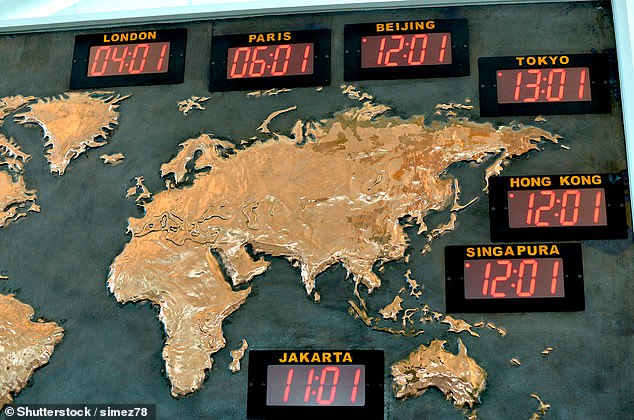[ad_1]
The countdown is on for the big summer break – with the school holidays just around the corner.
Millions of people will be traversing the globe in pursuit of adventure and relaxation in peak season but anyone who’s ever felt the curse of jet lag will know that a long haul hop comes at a price.
However, a former British Airways cabin crew worker, who’s clocked up thousands of airmiles across the world’s 24 time zones, has revealed her top tips for beating the lag – and a sleep expert agrees with her.
According to new research by Well Pharmacy Online Doctor, the impact of jet lag on our holidays is real, and can even affect several days of our precious time away.
The study found that 86 per cent of British people say they’re affected by jet lag when they travel across different time zones.
And almost one in ten (8 per cent) says it can kick in so badly that three or more days of their holiday are impacted by how they sleep – or don’t sleep.
In the survey, women were found to be more severely affected by jet lag than their male counterparts.
Ex BA staff member Saskia Sekhri has revealed her tips – alongside a skincare ‘secret weapon’ – which she says she used to frequently rely on while flying long distances.

Heading through time zones? Then jet lag is likely to darken your door – with one recent survey by Well Pharmacy Online Doctor suggesting one in ten get it so bad that it affects three or more days of a holiday (Stock image)
Saskia explains that fighting sleep – until it’s nighttime where you’re heading – is often the best way to head jet lag off at the pass.
She says: ‘Staying awake until local bedtime after landing is a good way to beat jet lag as it helps you acclimatise to local conditions.
‘Essentially, it forces your internal body clock to sync with the local time, helping your circadian rhythm.’
She adds that when you’re at 38,000ft you can also try and keep the light close to you in the cabin natural, as well as staying hydrated throughout your journey.
‘Alongside this’, she says, ‘another little-known hack is to elevate your legs to help with circulation and lymphatic drainage.’
After landing a brisk cold shower can help too, Saskia adds, and she swears by ‘dandelion tablets or drinking dandelion tea post-flight to beat the dreaded post-flight puffiness.’
Sleep expert Dave Gibson agrees, telling MailOnline: ‘Long-haul travel can significantly disrupt your sleep due to its impact on your circadian rhythm – the internal body clock that regulates sleep, hormones, and metabolism.
‘The main issue is that your body clock remains set to your original time zone, especially with crossing multiple zones, making adaptation harder, while cabin pressure changes can cause discomfort and dehydration, further impacting energy levels.’

While some people take medication to regulate their body clock, ex BA cabin crew member Saskia Sekhri says herbal remedies – and following a few sensible rules can really help to banish the lag (Stock image)
Take eye masks and earplugs to drown out light and sound, and keep using them when you check in your hotel to enhance sleep the next night, Gibson suggests.
And instead of taking medication such as melatonin to regulate the body clock artificially, both Saskia and Dave are fans of the herbal route.
Saskia says: ‘Cabin crew often refer to the morning after taking jet lag medication as similar to “a hangover”‘.
Dave says look to your garden for a natural remedy, saying: ‘Not only is lavender a calming soporific scent and a great sleep aid, but it can also help reduce something called “first night effect”, which is essentially our natural alertness when sleeping in a new bed, the stress of which can keep you awake.
‘Having a familiar scent in the room can help.’
According to the research, the most common remedies travellers currently turn to are drinking more water, adjusting meal times and their sleep schedule to local time, and avoiding caffeine or alcohol.
What you eat in the skies can help make a difference too, says Saskia.
She advises: ‘Avoid salty, spicy and food with a lot of garlic.
‘Instead, stick to light meals: fruit and veggies, and protein snacks. I’d sometimes even add celtic salt and lemon to my water bottle, to restore electrolytes lost from cabin dehydration. The lemon also provides that little boost your digestion needs while adding a hint of Vitamin C.’
And Gibson says natural yoghurt, packed with probiotics for gut flora, can also help, explaining: ‘One problem with long-haul travel is that it affects your gut biome, which is the inner ecosystem of our digestive systems.
‘Having probiotic foods (which include kombucha and kimchi too or even taking a probiotic supplement can get the bacteria reset again and this in turn reduces jet lag’s effects on your digestive system.’
[ad_2]
This article was originally published by a www.dailymail.co.uk . Read the Original article here. .

